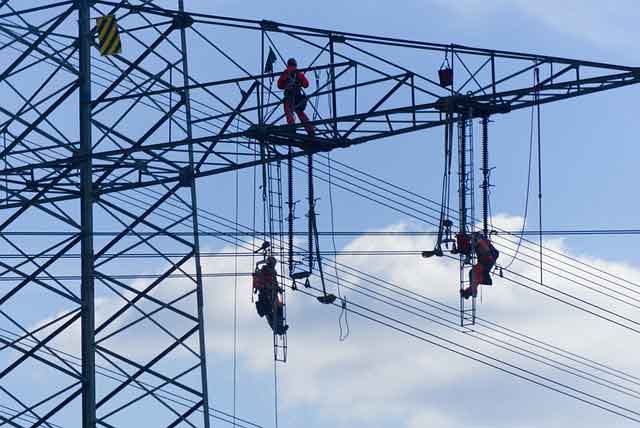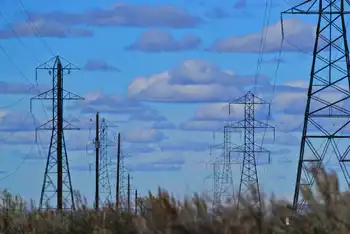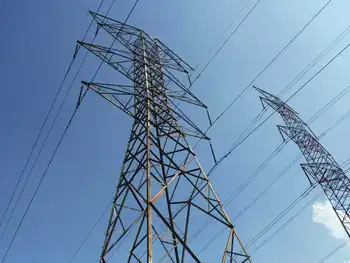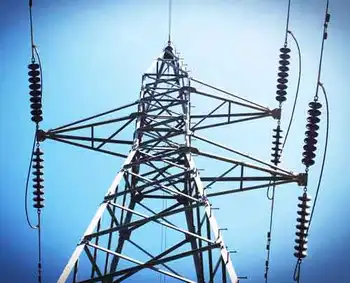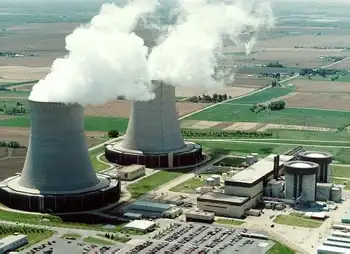Finger-pointing 'Enron' enrages, entertains
By The Boston Globe
Substation Relay Protection Training
Our customized live online or in‑person group training can be delivered to your staff at your location.

- Live Online
- 12 hours Instructor-led
- Group Training Available
But what about the state and federal regulators who consistently gave the company a free pass, in part thanks to Lay's friendship with both George Bushes? What about the accountants at Arthur Andersen who signed off on Enron's three-card-monte approach to bookkeeping? What about the banks that funded the company, the analysts who pushed the stock, the journalists who sold Enron as a bastion of innovation and integrity? What about anyone who bought the stock without caring that the numbers didn't add up?
The strength of Alex Gibney's entertaining and enraging "Enron: The Smartest Guys in the Room" isn't just that it simplifies the best-selling book by Fortune reporters Bethany McLean and Peter Elkind so that mere mortals can understand what happened. The new documentary says that everyone on the bandwagon was complicit; it implies, moreover, that the timbers of the bandwagon itself were rotten with go-go avarice.
This is refreshing. The Enron debacle - the biggest bankruptcy in US history, followed by revelations of fraud on an unprecedented scale - is too easily cordoned off as an example of corporate arrogance run amok. But no one does what Lay and company did without help, as well as an awful lot of people looking the other way. Gibney points fingers.
In some cases, that's all he can do -- there was, after all, a whole lot of shredding going on. "Smartest Guys in the Room" is at its weakest (albeit funniest) when it forgoes the evidence and leans on Michael Moore-style song cues such as "Dear Mr. Fantasy" or overreaches for some random celebrity-bashing. More tasteless is the use of filmed re-enactments for the suicide of Enron executive Cliff Baxter or to "illustrate" Enron Energy Service head Lou Pai's obsession with strippers.
On the other hand, how do you turn down a gift from the documentary gods such as an Enron in-house gag video featuring appearances from Bush father and son? Or a recording of the conference call in which Skilling melted down and swore at an analyst? Or phone tapes of Enron traders viciously gloating over squeezing California dry during the state's energy crisis? Or videos of company town meetings, where, over the course of several years, Lay lied through his teeth, urged employees to buy stock he was busy unloading, compared Enron's fall to 9/11, and, finally, was asked by an employee, "Are you on crack?"
In other words, Gibney has been able to get his hands on the right materials, and he assembles the right talking heads to string the story together. Journalists Elkind and McLean offer their takes, of course, but Enron vice president and whistleblower Sherron Watkins is on hand, as is John Olson, the Merrill Lynch analyst who was fired for daring to suggest that something was rotten in the state of Texas. Gibney also talks to little fish such as the Pacific Gas and Electric linemen who helplessly watched as Enron gobbled up their company and reduced their benefits to smoking ruins.
They and others help the director paint a clear picture of what happened: Lay started an energy company to deliver and trade natural gas; with Skilling's "visionary" help he extended Enron into no-win ventures such as video-on-demand and broadband; an accounting technique called "mark-to-marketing" let them report any future profits as actual earnings the day a deal was signed; to further disguise the financial hemorrhaging, CFO Fastow created dozens of sardonically named shell companies so that Enron was essentially doing business with itself. By the end, the company had so departed from reality that Skilling seriously proposed that Enron trade weather.
How? Skilling had no idea, but that had never stopped the company before. And right there is the most disturbing part of "Enron: The Smartest Guys in the Room" - that as the shell companies proliferated, no one knew or cared what they did, just as no one cared what Enron's business was supposed to be once it grew beyond a certain point. It was a giant corporation, and that was enough. The company motto was "Ask why," but no one - inside or out - did that until far too late.






